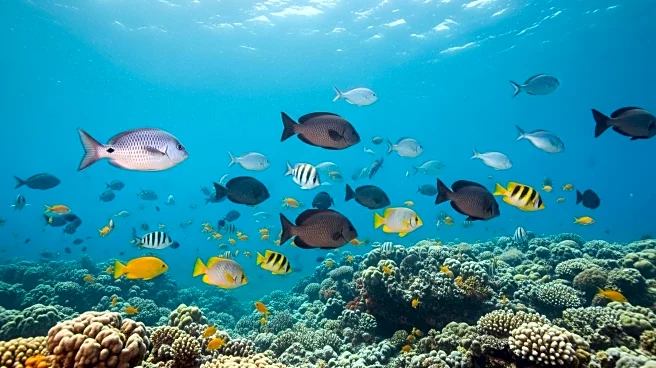What's Happening?
The World Trade Organization (WTO) has successfully implemented a landmark agreement to curb subsidies that contribute to overfishing, marking the first agreement to take effect at the WTO since 2017. This development follows years of stalled negotiations and is seen as a significant step towards allowing global fish stocks to recover. The agreement, which was initially reached in 2022, received the necessary support from two-thirds of WTO members, including Brazil, Kenya, Tonga, and Vietnam. The deal prohibits governments from providing subsidies for overfished stocks and for fishing in international waters beyond their jurisdictions. Additionally, a fund will be available to assist poorer states in transitioning to the new regulations. Despite this progress, further negotiations are needed to address divisive issues not covered in the initial agreement.
Why It's Important?
The implementation of this agreement is crucial for the sustainability of global fish stocks, which are vital for the livelihoods of millions of people worldwide. By curbing subsidies that lead to overfishing, the WTO aims to promote healthier ocean ecosystems and support local fishers who rely on sustainable fishing practices. The agreement also highlights the role of international cooperation in addressing environmental challenges. However, the deal's success depends on the continued commitment of member states to negotiate and implement comprehensive rules that address all aspects of overfishing. Failure to do so could result in the expiration of the current agreement in four years, potentially undermining efforts to protect marine biodiversity.
What's Next?
The WTO will continue negotiations to expand the scope of the agreement and address unresolved issues. Developing economies, such as India, are seeking exemptions that other states find unworkable, which could complicate future discussions. The WTO Director-General has expressed optimism about concluding talks or finding ways to prevent the agreement from expiring. The outcome of these negotiations will determine the long-term effectiveness of the agreement in curbing overfishing and promoting sustainable fishing practices globally.










